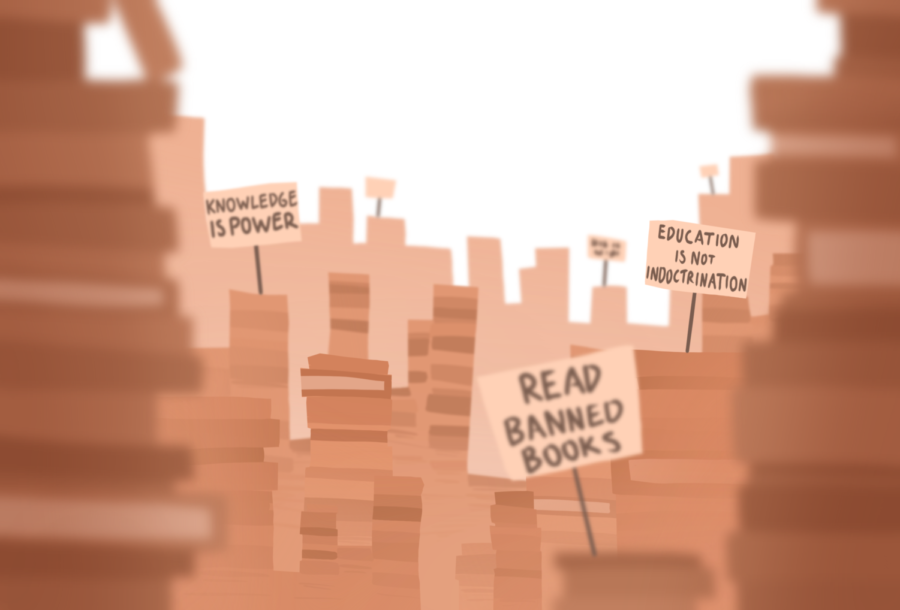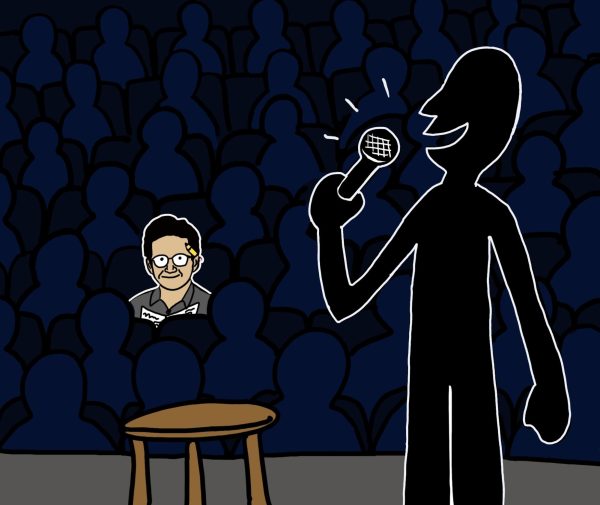Opinion | Banning books from schools prevents important conversations from taking place in classrooms
October 14, 2022
To Kill a Mockingbird, Lord of the Flies, The Grapes of Wrath, Catch 22, Slaughterhouse V. The books are classics, meant to be absorbed and devoured in classroom curriculums where students are encouraged to explore universal themes of humanity and society’s greatest faults. Yet, in many places, such books are banned from classrooms. Classics fall throughout the years of history, holding the testament of time, and it is through the imagination and fluidity of language that these written texts became a universal language in themselves. It is through time and language, however, that the most poignant controversy developed, and where numerous disagreements and disputes have been had over the kinds of books labeled “inadequate” or “inappropriate” for school curriculums.
Slaughterhouse V, published in 1969, is a deconstruction of fate and war set in the Vietnam War in which author Kurt Vonnegut parallels his own struggles and PTSD from war through the protagonist. As an anti-war testament that sang the hardships of the damage that America’s Dresden bombing did to innocent human lives, it is not difficult to see why the government banned this book during the 70s, a time where protests against the Vietnam War were at their peak and support for the war was steadily decreasing.
Elizabeth Hartley, an English teacher at ETHS, has Slaughterhouse V in her curriculum as a way to teach students the dangers of war and to humanize all the lives lost at the hands of our government.
“I think during the Vietnam War, everybody was really, really hoping for a happy ending and there wasn’t one,” Ms. Hartley explains. “The way we got out of the war was not because we ran out of bullets or we beat the bad guys or anything like that. We got out of that war because of people [in high school]. It was the protesting stateside that made it commercially unlivable in society.”
Those officials that were banning books did not want to see revolts take effect and stop their plans in part because, as Ms. Hartley states, “it’s bad for the economy to be at peace”.
The production and shipment of fabric, weaponry, bullets, food and other war essentials boost businesses, therefore supporting our economy. But at what cost? Our voices are more powerful than we know, and without them, our world would have already turned into one void of emotion, artistic expression, and humanity.
This debate also seeps into academic fields outside of the humanities.
Recently, Florida legistlators banned multiple math textbooks from the curriculum due to content regarding “banned topics” such as critical race theory and racial profiling.
“I’m just thinking to myself, like, two plus two equals four, right? It’s not two plus two equals, well, how do you feel about that? Is that an injustice?” says Desantis regarding his reasoning for supporting the banishment.
Desantis’ sentiment echoes that of the numerous efforts made by elected officials to prevent social and political dialogue within classrooms—even in mathematics, where these topics are rarely mentioned. Among the 41% of math textbooks rejected from Florida’s curriculum, a familiar textbook came to light: , The Practice of Statistics, an AP Statistics textbook we use here at ETHS.
“I think perhaps the Governor of Florida is trying to suppress students from using the skills they learned in, say, an AP Statistics class to understand some of the societal issues happening in this country,” says ETHS statistics teacher Jacob Mills. “If we give students the tools to analyze those problems from a statistical lens and understand the scope and severity of the issue, then it becomes a problem for some people in this country.”
Governor Desantis is not troubled about the supposed learned “critical race theory” present throughout the text, but what students can take from that information and start applying it to real-world situations. In short, Desantis wants to keep his citizens ignorant, hold onto the power he holds in conversations regarding race in the education system, and to live in a world where ignoring the problem will keep his hands clean of any potential threats.
Mills states that “the whole idea of Statistics is to analyze problems that are relevant and local, both to engage students and answer the question, ‘how can I apply this new knowledge to solve problems in this world?’ How can we as a society consciously prepare our students to interpret the world around us if we are not given the tools to do so?”
Banning books silences voices who dare to question notions and social constructs, which young audiences in particular should be encouraged to do because it enhances their critical thinking and individual expression. Literature, and art in general, should be available and sought after by everyone. Prohibiting books is prohibiting the future generations of students from being able to learn.






















